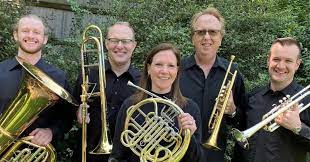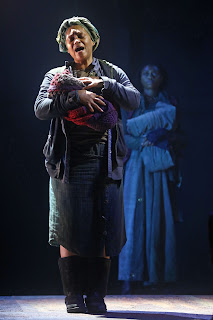The Bushnell, Hartford, CT
December 8-10, 2023
by Michael J. Moran
For the fourth “Masterworks” weekend of their 80th anniversary season, guest conductor Gerard Schwarz led the HSO in two classic Beethoven fifths from 1808/09– his last concerto for piano and orchestra, nicknamed the “Emperor;” and perhaps the most famous symphony ever written.
HSO opened its program with the 2022 “Four Hymns Without Words” for trumpet and orchestra by African-American composer Adolphus Hailstork. He notes that “each begins with melody and harmony that sound like a hymn tune” and calls his music “tonal, lyrical, and very rhythmic.” The clarion tone of soloist John Charles Thomas, HSO assistant principal trumpet, and lively support from his colleagues and Schwarz revealed many colors in this stirring 10-minute suite.
 |
| Orion Weiss |
In complete contrast, Weiss responded to a rousing ovation with a ravishing encore of the hushed “Nocturne” from Grieg’s “Lyric Suite” that held the audience’s rapt attention for nearly five minutes.
The concert closed with an electrifying account of Beethoven’s fifth symphony that made this musical warhorse sound new again. From the familiar opening four-note motif of a tempestuous “Allegro con brio,” a flowing “Andante con moto,” and a stormy “Allegro” transition to a triumphant grandest of all grand “Allegro” finales, Schwarz had the HSO playing with white-hot intensity. Now Music Director of the Palm Beach Symphony, with previous experience leading the Seattle Symphony, the Los Angeles Chamber Orchestra, and New York’s Mostly Mozart Festival, his professional skill and engaging stage presence were much appreciated in Hartford.
The HSO’s next Masterworks program (February 9-11), “Enduring Love Stories,” will feature Music Director Carolyn Kuan and guest husband-and-wife duo Rupert Boyd on guitar and Laura Metcalf on cello in a world premiere titled "Girl Meets Boyd" by Clarice Assad, with music by Tchaikovsky, Wagner, and Offenbach.





.jpg)








.jpeg)




